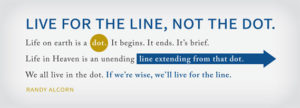This ‘18-‘19 series is my way of celebrating some of my deepest values leading up to my 50th birthday this spring. The fall series featured four “concessions” on life’s downers; this winter & spring features “confessions” that drive who I am.
Faith. It often gets a bad rap nowadays, but everyone practices it in multiple forms. “Faith” can be: a euphemism for some nebulous belief in a higher power or even in oneself; a blind adherence to an unthinking, uncritical and unscientific set of beliefs; a learned trust in a person, institution, tradition or even an object; succinctly defined as “the assurance of things hoped for, the conviction of things not seen” (Hebrews 11:1, ESV); or some combination of the above. But everyone practices it.
Consider the Creation vs. Evolution debate: any position on that spectrum of theories takes faith. None of us were witnesses to the beginning of the Earth, so we have to rely on testimony (e.g., theologians and/or scientists), historical science, and to some extent, empirical/ observational science to draw conclusions. My faith (based on a plain reading of Scripture and embellished by various studies) informs me that God created the world more quickly and more recently than is assumed by many modern sensibilities; others’ faith says that God created the world, but millions of years ago (perhaps taking millions of years in the process); still others, by faith, contend that the world (and all the life therein) came into existence through random chance over billions of years. Regarding the origins of life and the Earth itself, it’s impossible to derive any conclusions whatsoever without faith.
On a more mundane level, we all have faith every time we step onto an airplane or other form of transportation: we trust and believe that the pilot is trained, sober, and knows the way to our destination! We also have faith that if we dial 911, the police or EMTs will respond within mere minutes to our distress call. One may simply label that conditioning or expectations, but based on the definition of faith from Heb. 11:1 (“things hoped for” and “unseen”), a 911 call is indeed faith-based.
On our company level, every one of our parents (current and past) have “faith” of a sort when signing up their child(ren) for JUGHEADS. Parents have faith that the SLT, the adult staff, and Wendy & I personally have their children’s best interests in mind and heart and will show them love, guidance, service and protection rather than the opposite. Yes, parents exercise faith (“assurance…conviction”) every time they entrust their children to anyone outside of their home.
So, on what is faith based, given these examples? We base our faith on reliable authority, testimonies by eyewitnesses and experts, and research. Regarding my own career, I acknowledge that very few have ever signed up their children merely to learn to juggle. Word of mouth, an overview of our website, evidence of our public appearances (e.g., Juggle Jam, the Edina Parade, media coverage), and a taste of future membership through our summer camps or “Bring a Friend” events are all examples of people’s process of choosing membership for their children here. It’s never a blind proposal to become a Jughead. But it takes a leap of faith to join.
Applying that to the spirit of the topic at hand, faith in a gracious God is based on many of the same principles that lead us to fly in an airplane, submit to a medical professional, or enroll a Jughead. When I was in college, I dove deep into exploring what had been an experiential (heart-based) Christian faith throughout my childhood by adding a lifestyle of serious study of the Bible (mind-based) to complete a Christian faith that is both felt and known, led by the Spirit and based in truth (John 4:24).
Faith is also an action. A first-century church leader and half-brother of Jesus wrote that “faith without works is dead” (James 2:26), which means that any sincere, complete, saving faith must, by necessity, be accompanied by good works that reflect truth claims and personal feelings. To punctuate his most famous passage on being saved by grace, the Apostle Paul wrote in Eph. 2:10 (ESV), “For we are his workmanship, created in Christ Jesus for good works, which God prepared beforehand, that we should walk in them.” A decade or two before the writings of James and Paul, Jesus quoted Deuteronomy 6:4 and taught that the basis of all good works (e.g., loving our neighbors) was to love God with all one’s heart, soul, mind, and strength (Mark 12:30)—or put another way, to love God with all one’s emotions, will, intellect, and faithfulness.
I would be remiss if I didn’t quote one more verse from “The Honor Roll of Faith,” Hebrews 11. Amidst the author’s repetition of the word “faith” 25 times, including citing dozens of examples in the Torah (Old Testament) of individuals and groups who walked by faith, he writes, “Now without faith it is impossible to please God, for the one who draws near to Him must believe that He exists and rewards those who seek Him” (Heb. 11:6, HCSB). We all have an innate desire to please our parents, our teachers, and other authority figures from whom we yearn for approval. Faith is the key to pleasing God Himself, from that first step of believing that He exists to the ultimate goal of being rewarded for seeking Him. One of the most crucial ways to seek God is through reading His Word, the Bible. That ancient and life-giving text will be explored next month.
Meanwhile, consider the elements of everyday faith, from the mundane to the magnificent. Faith is neither anti-science nor merely warm fuzzies. It’s an intellectual pursuit, corroborated by experiences, ratified by works, often inundated by heartaches (consider the Psalms), and hopefully accompanied by a deep peace and overflowing joy that no one can explain away through mere natural means.
Developing Youth Through Juggling—By Faith—Since 1994,
Paul



